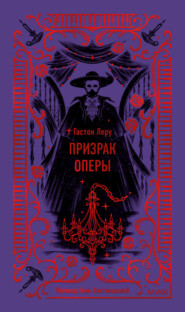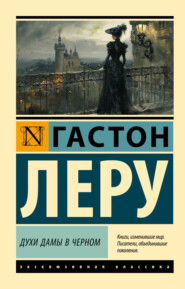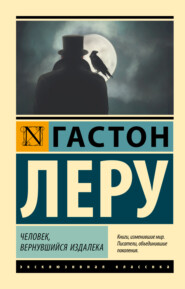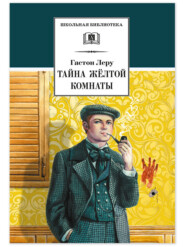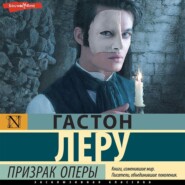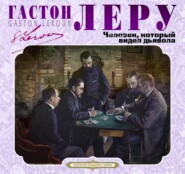По всем вопросам обращайтесь на: info@litportal.ru
(©) 2003-2024.
✖
The Bride of the Sun
Автор
Год написания книги
2018
Настройки чтения
Размер шрифта
Высота строк
Поля
“Anything else? What do you mean?” demanded the Marquis violently.
“Well, it could not be… the other thing. If Maria-Teresa was… was the Virgin of the Sun, they would not have let her pass out.”
“Are we all going mad! After all, we are masters here!” burst out Don Christobal. “There are the police, and the troops. All those rascals out there are our slaves. ‘Pon my soul, we are all raving!”
“Of course!” exclaimed Maria-Teresa.
“All the same, I think we ought to get out of Cajamarca as soon as we can,” said Dick, going to the window and looking out. Night had fallen, and with it silence. The square outside was deserted.
Suddenly there was a knock at the door, and a servant brought in a letter addressed to Maria-Teresa. She tore it open and read aloud:—“Return to Lima at once. Leave Cajamarca tonight.”
“It is not signed,” she said, “but this warning comes from Huascar.”
“And we should follow his advice,” said Dick. There was another knock at the door. This time, it announced the arrival of the Chief of Police, who was anxious to know what had happened.
He had heard of the incident at Atahualpa’s palace, and had moreover been warned by an Indian, an employee at the Franco-Belgian bank at Lima, that it might be dangerous for the Marquis and his companions to show themselves in the streets on the following day.
It was obvious that the man feared trouble, and would have given anything to see the party a hundred miles away. When he learned that they were ready to leave at once, he busied himself about finding them fresh mules and a guide, and furthermore detailed four troopers to escort the party as far as the railway.
Cajamarca was left at eleven o’clock that night, and the return journey was made at double the speed at which they had come. Dick would let nobody rest, and forced the pace throughout. It was not until the following night, safe in the train for Pascamayo, that they realized the ridicule that attached to their hasty flight. “Just like a pack of children frightened out of their lives by Agnes’ stories,” said the Marquis.
Back in civilized life again, they were all surprised at their panic. After all, the whole thing could be so naturally explained—fanatics resenting the presence of strangers at a religious festival, and nothing more. The best thing they could do was to forget it as soon as possible. Uncle Francis restored the party’s gaiety by going through the same performance which he had rehearsed on landing.
Forty-eight hours in Lima completely dispelled the cobwebs. Maria-Teresa found a great deal of work awaiting her, and forgot her fears in a maze of figures which took her to Callao early, and kept her busy at the offices until late in the afternoon, when Dick came to fetch her.
One afternoon, about eight days after the adventure at Cajamarca, the tap at her window which announced Dick’s arrival came earlier than usual. Maria-Teresa got up, and threw open the shutters. Dick was not there.... Then she retreated with a half-strangled scream. Was it possible? In the rapidly gathering darkness, she could not be sure, and leaned out of the window to see better.... That thing, swaying in the darkness, looked just like the sugar-loaf skull.... She retreated into the room, trembling in every limb, and turned round. From the dark corners of the chamber two other shadows, the valise and cap skulls, were advancing slowly, swaying as they came.
For a moment, Maria-Teresa thought she had lost her reason. Then she made a violent effort to regain control of herself. Dead skulls could not come to life like this. And yet, they were coming toward her, swaying horribly, above shadowy bodies! A desperate scream for help was choked in her throat. “Dick!…” and nothing more. The three living skulls had hurled themselves upon her, gagged her, and now, throwing the inanimate girl over their shoulders, hurried through the black hole of the open window. Maria-Teresa’s own motor was waiting there, her negro boy at the wheel, smiling strangely.
Their mummy hands, horribly living, lifted the girl into the tonneau, and the three monsters, like three larvae, climbed in after her. Then the car shot down the street.
BOOK III—THE TRAIL OF THE PONCHOS
I
Meanwhile, Dick, wandering through Callao until the time came to call for Maria-Teresa, was strolling up the Calle de Lima. He had just come from the Darsena docks, where the harbor engineers had been giving him news the reverse of cheerful. In the present condition of the country, they said, any venture in the deserted gold-mines of the Cuzco was hopeless.
The last two days had brought news of fighting from the other end of the country. Or, at all events, cartridges were being used up, even if there was no attendant damage. Everybody had thought Garcia feasting at Arequipa, but the pretender had evaded his enemies and attacked the Republican forces between Sicuani and the Cuzco. It was even rumored that Cuzco itself had fallen into his hands.
Were all this true, the outlook for Dick’s affairs was bad. His company, thanks to the influence of the Marquis de la Torre, had obtained a concession from President Veintemilla, This would not be worth the paper it was written on if Garcia proved victorious. Super-active by nature, the young engineer could not endure the thought of the long months of enforced idleness before him until the revolution had been settled in one way or another.
As he came into the Calle de Lima, Dick pulled out his watch. He found that he still had a few minutes to spare. Much as she loved him, Maria-Teresa did not like being interrupted at her work, so he turned into the Circulo de los Amigos de las Artes for a drink. This establishment, though baptized a club, was in reality a huge café and reading-room. The ground floor was packed with people discussing the latest events. Cuzco was in every mouth, and it was noticeable that Veintemilla’s warmest partizans now had a good word to say for Garcia.
A stampede of shock-headed newsboys, shouting the latest edition of an official paper, tore past the café, scattering still wet sheets and collecting coppers. One of the customers climbed onto a table and read out a proclamation by the President, urging calm and giving a categorical denial to the report of the capture of Cuzco. General Garcia and his troops, the President announced, were bottled up in Arequipa, all the sierra defiles were in the hands of Government troops, and the traitors would be hurled into the sea or chased into the great sand deserts. The proclamation concluded with a reference to Indian troubles in the suburbs, attributing them to the usual Interaymi effervescence, and dismissing them as negligible. Cheers for the President ended the reading of his manifesto. Wavering allegiances were at once restored, and it was generally agreed that his statement was superb.
Dick left the café a little happier, though he did not really place a great deal of faith in the official denial. Night had fallen and he walked briskly, now fearing that he might be late. As he went, he remembered his first day’s walk through this same labyrinth of narrow streets. Then he caught sight of his fiancée’s verandah in the distance, and noticed that the window was open, as on the first day.
There she sat, the little business-woman, with her brass-covered green registers. What a manly little brain it was! And to think that the pair of them had been such fools over that Golden Sun bracelet… Something to laugh about in after years, that!
“Hello, Maria-Teresa!”
There was no answer, and Dick walked up to the window.
“Maria-Teresa!”
Still no answer. He peered into the room, trying to see where she was hiding. Nobody there.
“Good God! Maria-Teresa!”
He walked into the room. There could be no doubt of it. That table knocked down, those books on the floor, that curtain torn from its rings, this broken pane in the window told the story. Silence greeted his shout for help. Not a servant, not a soul in the place, and all the doors open! “Maria-Teresa! Maria-Teresa!”
Hardly knowing what he did, Dick ran into the deserted courtyard, and then back into the office. There could be no doubt of it. Huascar and his Indians had carried her off. That dog Huascar, whom she trusted, and who loved her, not as a dog should, but as if he were a man. Horror-stricken, furious, Dick searched the room for some clue.
The scoundrels! He swore aloud as he pictured Maria-Teresa struggling in Huascar’s arms and calling for help in vain. That was where he should have been, instead of listening to all those fools in the café. He could have laid his hands on Huascar then! That was the man they should have watched instead of being thrown off the scent by all those wild-cat legends about the Bride of the Sun.
An Indian in love with a white girl and thirsting for revenge! Of course! He saw it all now, and remembered how Huascar had last left that same room, driven out by Maria-Teresa. The insolent dog, with his fist raised in menace!
As idea after idea swept across his brain, Dick stared helplessly at the blank walls about him. What could he do? He jumped back into the street and hesitated. No clue here—only the doors of closed stores and sightless walls—a pit of gloom.
Suddenly he heard voices, and leaped into action. At the corner of the street there, under that lantern, was a wine-shop, the only living thing in this dead street. He ran toward it, kicked the door open, and almost fell on top of Domingo, the night watchman.
“Where is your mistress?”
Domingo, taken aback, mumbled indistinctly. He thought that the señorita had returned to Lima as usual with the señor. The motor had gone by just a little while ago.
“What motor?”
Domingo shrugged his shoulders. There were not so many motors as all that in Callao and Lima.
“Who was driving?”
“The boy.”
“Libertad?”
“Si, señor, Libertad.”
“Did he say anything to you as he went past?”
“No, señor, he did not see me.”
“Did you see your mistress?”
“The hood was up, señor, and the motor was traveling fast.... Nay, señor!… That is the truth. I swear it!”
Dick seized the man by the collar, and shook him like a rat
“What were you doing here? Why were you not with your mistress, at your post?”







